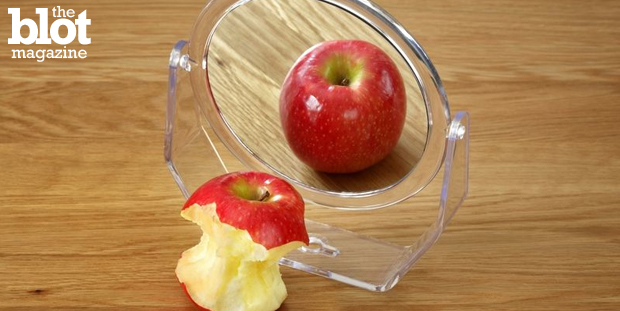
For most of human history, we’ve had one basic, daily problem: getting enough calories to survive. Thanks to the miracle of agricultural science, for billions of humans, that is no longer an issue. Instead, we have become obese and slothful. We have diseases brought on by abundance (diabetes) rather than shortage (rickets, beriberi). A great many people rightly work at getting better-quality foods into their stomachs. Then, there are the usual yahoos who take a good thing and turn it to crap by rigid adherence to extremes. And sadly, in a few rare cases, there are people who succumb to mental disorders brought on by obsessing about healthy eating.
Obsessive behavior appears to be a hallmark of our age, and when it comes to obsessing about a healthy diet, we all know someone. In extreme cases, it is a mental disorder, orthorexia nervosa, or at least that is what Dr. Steven Bratman calls it.
Dr. Bratman has impressive credentials: M.D. from UC Davis, Master of Public Health from the Medical College of Wisconsin and he did his residency in occupational medicine at U Penn. He is board-certified in occupational medicine and a certified medical review officer.
And he is very sensible about this disorder, which the good doctor is quick to point out is not listed in the Diagnostic and Statistical Manual of Mental Disorders (DSM), nor does he think it necessarily should be.
His website clearly states, “I do not, and have never claimed that vegetarianism, veganism, or any other nutritionally sound approach to eating healthy food is in itself a disorder. That would be absurd! Nor do I think that people who pay close attention to labels on the foods they mean to purchase are demonstrating a psychological problem (as some web articles on orthorexia would appear to imply.) Finally, I entirely agree that the problem of addiction to junk food is immensely more prevalent than obsession with healthy food. Nonetheless, it is possible to have an unhealthy obsession with healthy food.”
How bad can it get? Bratman cites the case of a young woman named Kate. “Kate tells of the time when doctors diagnosed her with anorexia. She resisted the diagnosis and their recommended treatment because it just didn’t seem to fit. She wasn’t afraid of being fat. She didn’t want to be thin. She just wanted to eat healthy food. In her mind, she was sick, and therefore needed to cleanse. As a result, she brought her weight down so low it killed her.”
Holy crap! The poor woman was literally dying to eat healthy.
Read more: Too Much of a Good Thing: When Compulsive Exercisers Just Can’t Stop
How did we get this way? It’s pretty simple really — the diet and health food industries have marketed eating as a moral code. They have created fads (remember when fiber was the be all and end all of dieting?), and they hype single scientific studies (pop quiz: Is coffee good or bad for you?) to sell products. They have people believing that they are “bad” if they eat a whole chocolate bar. That isn’t bad — a bit greedy and selfish perhaps, but not bad. Rounding people up for exile to concentration camps is bad. Stealing from the widows’ and orphans’ fund is bad. Kicking puppies is bad. Eating chocolate? Eating chocolate doesn’t make you bad any more than eating kale makes you good.
The world is not the one humans evolved in any more. Our air has a variety of gases in it that weren’t there 100 or 1,000 years ago. Our water has fluoride in addition to other things that we put in it. Our food supply has been altered for the last 10,000 years by selective breeding of plants and animals (it’s called farming, not genetic modification — which does the same thing better and faster).
And we are living much longer than we used to. Roll that around in your head for a while. Back when people ate freshly picked fruit and vegetables, bread made from whole grains straight from the miller’s and, on occasion, enjoyed range-free, antibiotic-free chicken and beef, they dropped dead in huge numbers at 30.
My point isn’t that Hershey and Coke should be the main providers of your daily calorie intake. In fact, I applaud the researchers who have taught us what to eat in quantity and what to indulge in only rarely. As I have aged, it has become more important to lay off the junk and tuck into the green, leafy stuff — I feel better when I do.
On the other hand, if I happen to have a Five Guys burger with my son or an ice cream with my 2-year-old granddaughter, that doesn’t make me a bad person, and it doesn’t occupy my thinking beyond “won’t do that again for a couple of months.”
You don’t get to live forever. So you may as well live a little while you’re here. People like the unfortunate Kate, who genuinely have need of mental health support and treatment, don’t need another thing to obsess about. In fact, no one does.
Bon appetite.
Jeff Myhre is a contributing journalist for TheBlot Magazine.





